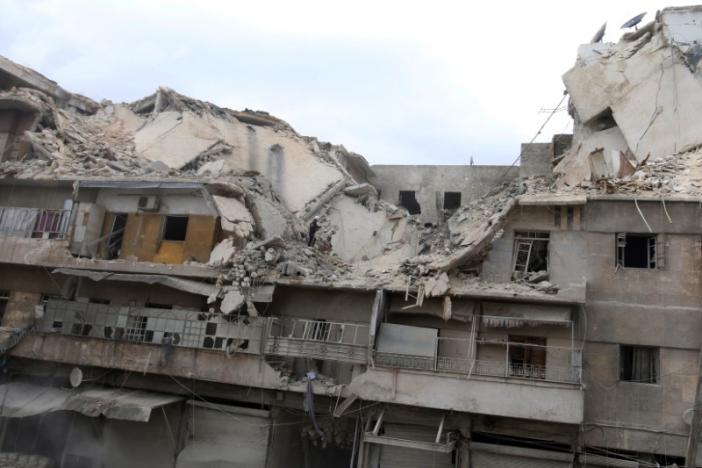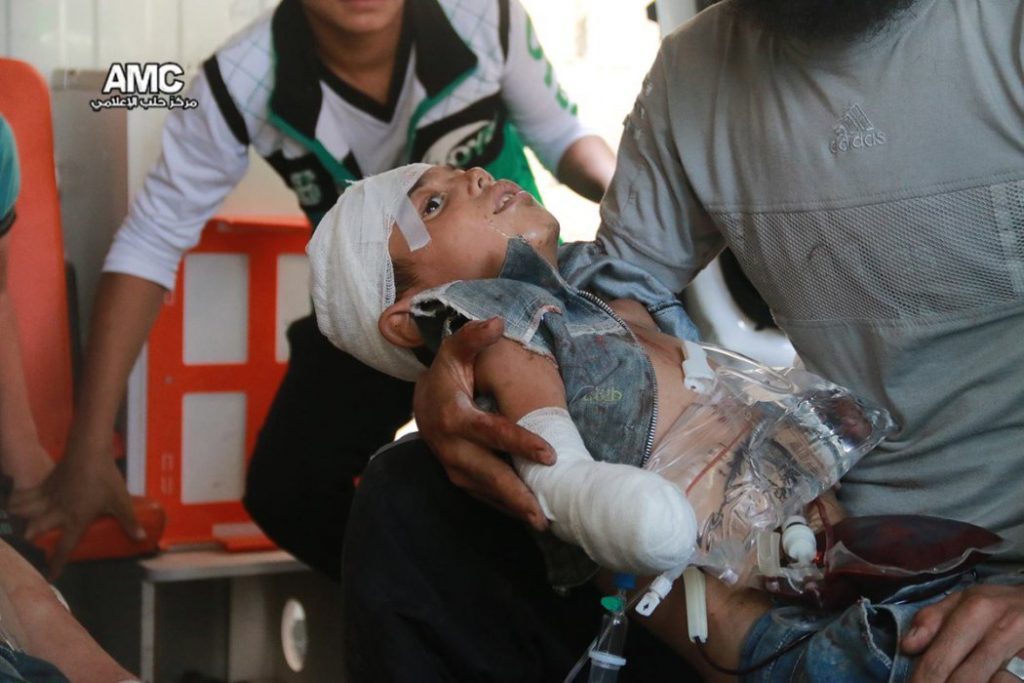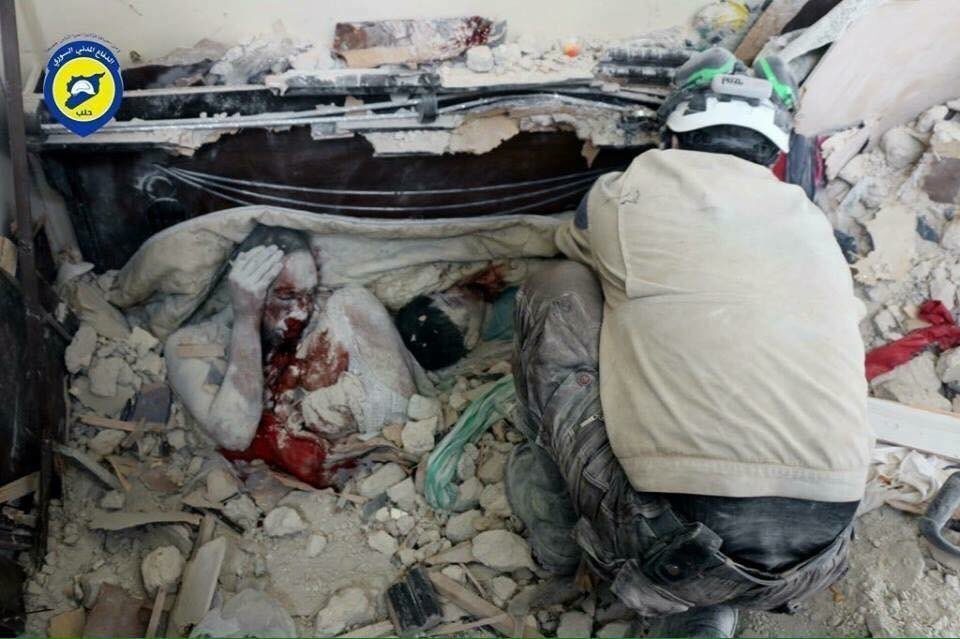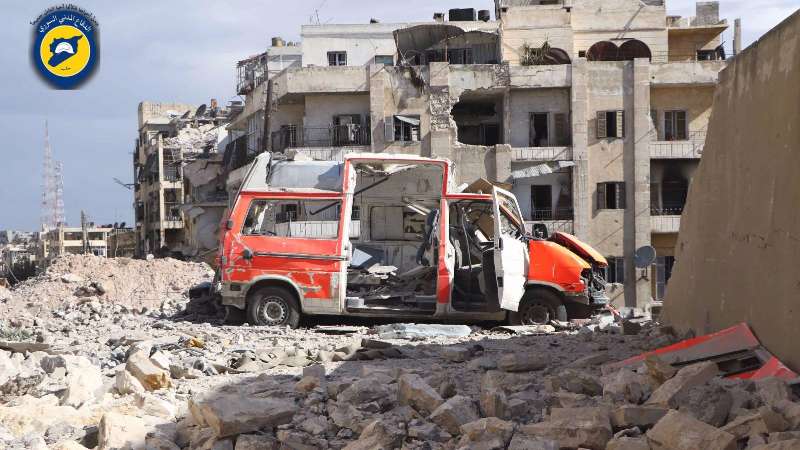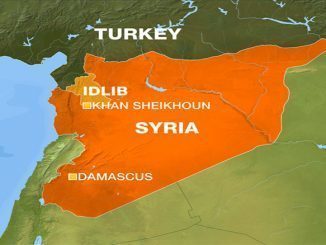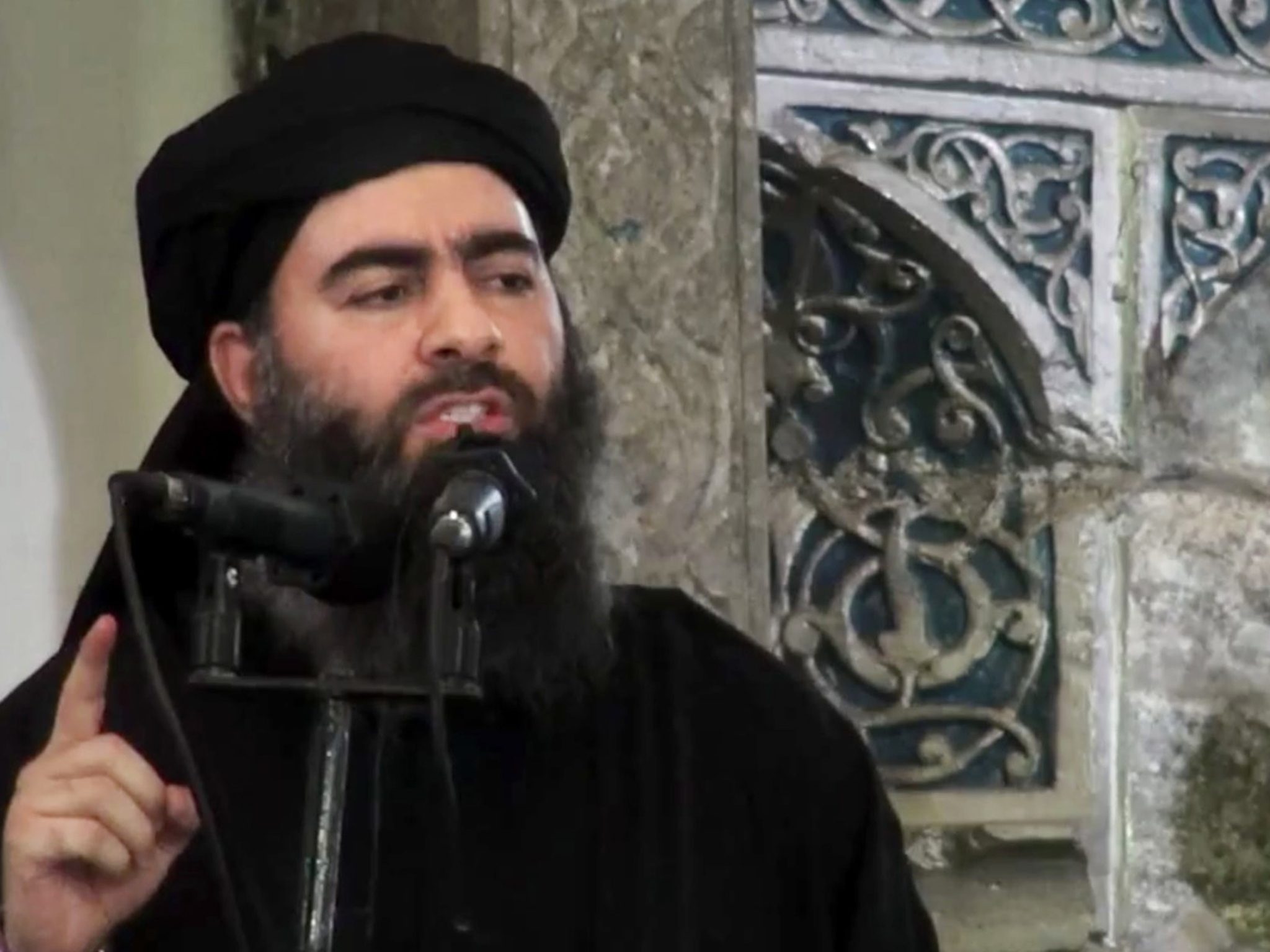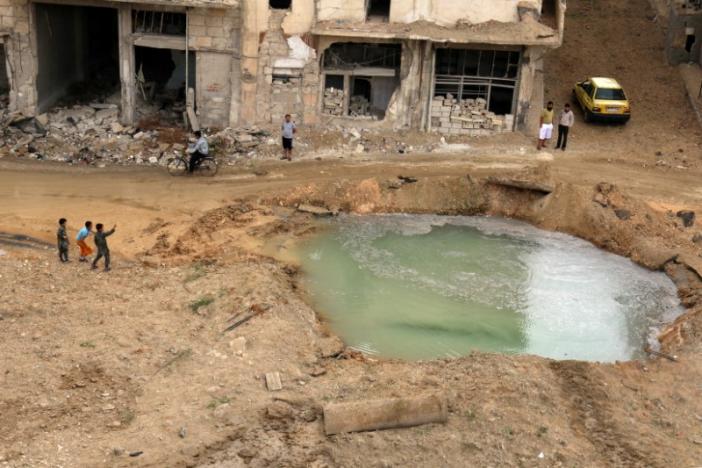
Assad-Russian jets have continued their intensive airstrikes on eastern Aleppo for the third day, leaving 2 million civilians without water and killing 180 since last week.
Assad regime said on Thursday it was starting a new wide offensive to recapture the rebel-held parts of Aleppo after a week-long ceasefire was decalred officially over on Monday. the offensive includes a ground assault, artillery bombardment, and intensive airstrikes.
Since last Monday, at least 180 people have been killed in rebel-held areas of Aleppo province, including the besieged eastern part of the city, the Syrian Observatory for Human Rights said on Saturday.
The attacks came as a United Nations official said nearly two million people in Aleppo are without running water as security conditions deteriorate.
Hanaa Singer, UNICEF representative in Syria, said intense attacks damaged the Bab al-Nairab water pumping station that supplies some 250,000 people in rebel-held eastern parts of the contested city with water.
Fierce strikes on Friday prevented repairs to a damaged pumping station supplying rebel-held districts of the city.
In retaliation, Unicef says, a nearby station pumping water to the rest of Aleppo has been switched off.
Unicef deputy director Justin Forsyth told the BBC: “Aleppo is slowly dying, and the world is watching, and the water is being cut off and bombed – it’s just the latest act of inhumanity.
Unicef spokesman Kieran Dwyer said the lack of running water could be “catastrophic” as residents now had to resort to contaminated water and were at risk from waterborne diseases.
He said water was being used as a weapon of war by all sides. The pumping station supplying rebel-held parts of Aleppo was damaged on Thursday and subsequent strikes had made repairs impossible, Mr Dwyer told the BBC.
“That pumping station pumps water to the entire population of the eastern part of city – that’s at least 200,000 people and then in retaliation for that attack a nearby pumping station that pumps water to the entire western part of the city – upwards to 1.5 million people – was deliberately switched off,” he said.
More destruction than ever
The attack has drawn on ordinance more destructive than anything previously used against the area, and many buildings have been entirely destroyed, residents say.
“They are using weapons that appear to be specifically for [bringing down] buildings,” said a senior official in an Aleppo-based rebel faction, the Levant Front. “Most of the victims are under the rubble because more than half the civil defence has been forced out of service.”
“We don’t have the equipment to pull the corpses out,” a resident said, standing on the rubble of a destroyed building in the city’s al-Bab district.
Describing the horror around him, he said an entire family was killed in a strike, with several people still lying under the debris.
“We are trying to help the injured, those who survived … but the situation is catastrophic. Destruction and death, everywhere around us. It seems that the Russians and the regime have been given a green light to slaughter us all. As if starving the people here was not enough – it’s now mass murder.”
The Assad regime forces, strengthened by Russian air power and Iranian-backed Shi’ite militias, has been tightening its grip on rebel-held districts of Aleppo this year, and this summer achieved a long-held goal of fully encircling the area.
Recovering full control of the rebels’ last significant urban area would be the most important victory of the war so far for Assad, strengthening his control over Syria’s most populous and strategically important regions.
The Syrian crisis began as a peaceful demonstration against the injustice in Syria. Assad regime used to fire power and violence against the civilians and led to armed resistance. 450.000 Syrians lost their lives in the past five years according to UN estimates, and more than 12 million have lost their homes.
